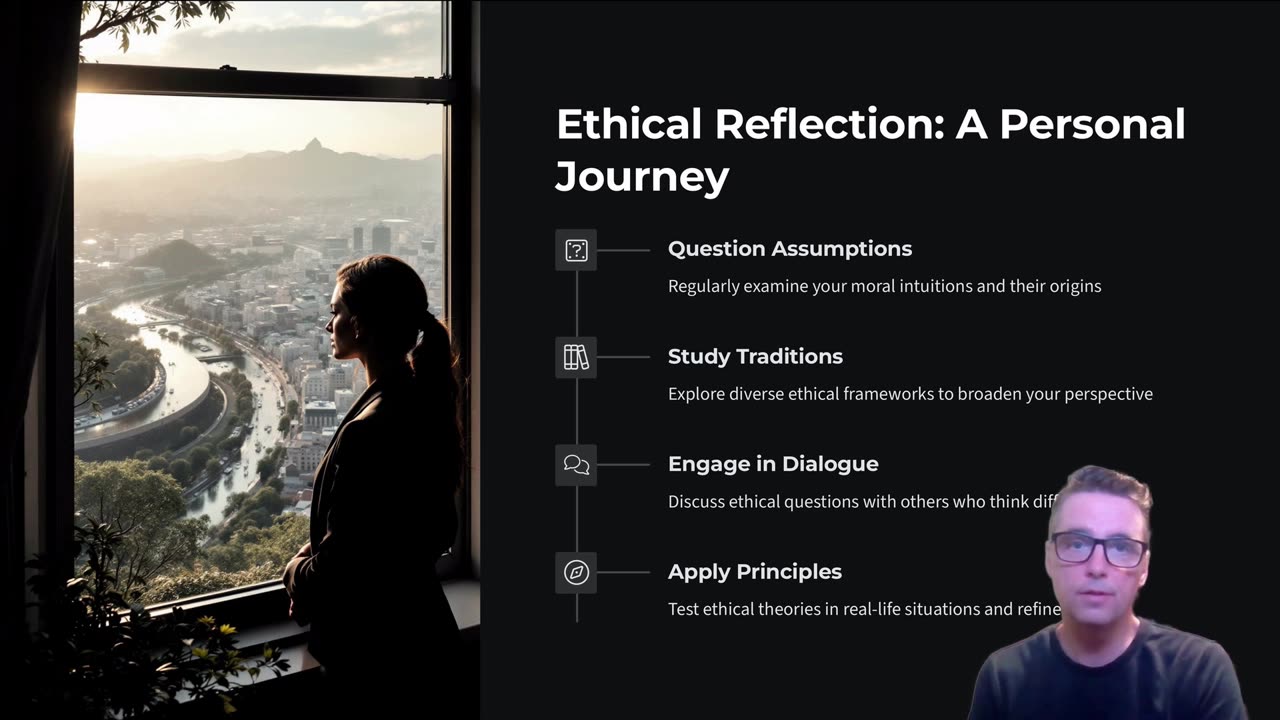Premium Only Content

The Landscape of Ethical Philosophy
Each of you carries within yourself a moral compass, shaped by family, culture, religion, and personal experience. But have you ever stopped to ask: Where did these beliefs come from? Are they universally true? Are there moral facts as concrete as mathematical theorems, or is morality simply a human construction, as variable as fashion trends?
These are not merely academic questions gathering dust in philosophy textbooks. These are the questions that have sparked revolutions, toppled empires, and continue to shape every significant decision in your personal and professional lives. When a doctor decides whether to tell a patient a devastating diagnosis, when a politician weighs the needs of the few against the many, when you decide whether to return a wallet found on the sidewalk—you are engaging with 2,500 years of ethical thought, whether you realize it or not.
What we embark upon today is nothing less than joining the greatest conversation in human history. Picture, if you will, a vast amphitheater stretching across millennia. In the front rows sit Aristotle and Confucius, debating the nature of virtue. Behind them, medieval scholars like Thomas Aquinas wrestle with divine command theory. The Enlightenment philosophers—Kant with his rigid categorical imperatives, Mill with his utilitarian calculus—occupy the middle sections, while modern thinkers like Sartre, Rawls, and Singer continue the debate in the contemporary rows.
And now, today, you take your seat in this grand amphitheater. You are not passive observers but active participants in this ongoing dialogue about how we ought to live.
-
 LIVE
LIVE
L1feCount3r
1 hour agoARC RAIDERS x LC: Enter the Chaos. Leave No Scrap Behind
89 watching -
 LIVE
LIVE
smay2010
1 hour agoVariety Game Stream!
119 watching -
 26:02
26:02
Planet 3 Outdoors
28 days ago $0.07 earnedBuilding a Treehouse and Catch & Cook a Giant Fish by the River 🌧️🍳
252 -
 LIVE
LIVE
RG_GerkClan
1 hour ago🔴LIVE - Big 1.0 Release - PvP, Questing and Domination - Escape From Tarkov - Gerk Clan
163 watching -
 34:21
34:21
Demons Row
15 hours ago $15.78 earnedJason Momoa Reveals His REAL Life in the REDRUM Motorcycle Club ⚠️🔥
115K24 -
 31:07
31:07
Blackstone Griddles
15 hours agoTop 4 Burgers of the Year | Blackstone Griddles
9.44K4 -
 15:37
15:37
True Crime | Unsolved Cases | Mysterious Stories
1 day ago5 Disturbing 911 and 999 Calls Made by Killers
61 -
 11:32
11:32
Geoff_Tac
15 hours agoIWI Masada 9S Elite
25K1 -
 23:17
23:17
marcushouse
2 hours ago $0.07 earnedNearly 3 Starship Launches Every Week!? This New Approval is HUGE 🤯
584 -
 LIVE
LIVE
FyrBorne
15 hours ago🔴Battlefield REDSEC Live M&K Gameplay: Best Builds For Competitive
235 watching